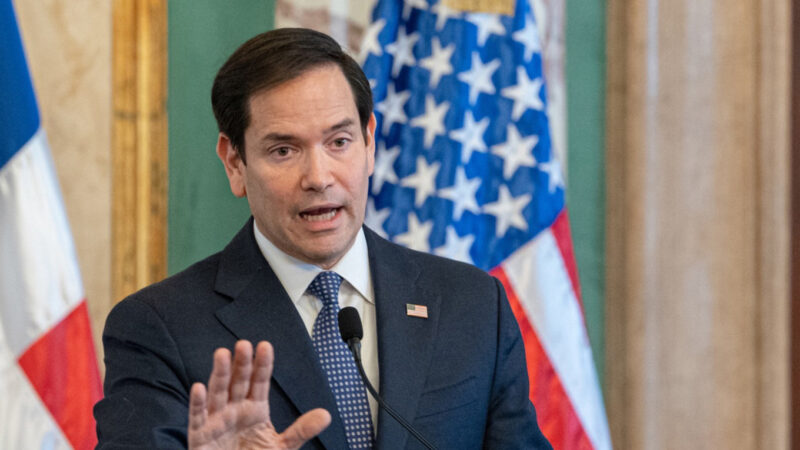In a direct challenge to international war efforts, U.S. Secretary of State Marco Rubio has accused unnamed countries of sabotaging peace talks to end the war in Ukraine. Rubio, while speaking on the matter, lauded President Donald Trump for his leadership in pushing for peace, yet also noted the considerable resistance he’s faced from other nations, though he refrained from naming them.
Rubio argued that the only viable path to peace lies in Trump’s leadership. “You’ve done it despite the roadblocks,” he told Trump, emphasizing the president’s unique ability to mediate a deal between Moscow and Kiev. According to Rubio, military solutions will never work, and the war should be concluded through dialogue, not aggression.
In a significant development, high-level talks between Russian and U.S. officials took place in Riyadh, Saudi Arabia, focusing on both the Ukraine crisis and Black Sea security. Yet, despite these long hours of discussions, neither side has revealed the outcome, leaving the situation unresolved.
Rubio’s comments came after a phone call between Russian President Vladimir Putin and U.S. President Joe Biden, which led to a temporary ceasefire agreement. The deal promised a 30-day halt to strikes on each other’s energy infrastructure. However, the Russian Defense Ministry quickly reported violations from Ukrainian forces, highlighting how fragile the truce is. Despite this, Moscow has expressed its commitment to uphold the ceasefire, calling for peace even amid these challenges.
Russia’s critique of Europe’s stance has grown stronger, with Kremlin spokesperson Dmitry Peskov slamming the EU’s increasing militarization of the conflict. According to Peskov, EU leaders are abandoning peace talks in favor of sending NATO forces to Ukraine, a policy he described as “hard to comprehend.” Rather than addressing the root causes of the conflict, Europe seems more focused on escalating military involvement.
Tensions have risen further between Washington and NATO allies since Trump took office. While Trump has pushed for a swift resolution, aiming to shift security responsibilities to Europe once a ceasefire is in place, the EU continues to focus on military solutions. This divergence was evident following a summit in London, where the UK and France signaled their willingness to send “peacekeepers” to Ukraine after a ceasefire. However, Moscow quickly rejected this plan, arguing that NATO involvement would only worsen the situation. Former Russian President Dmitry Medvedev even warned that such actions could spark a direct war between NATO and Russia.
With the conflict showing no signs of ending, Rubio’s calls for diplomacy and Trump’s leadership shine a light on the growing divide between peaceful negotiations and those seeking to fuel further conflict. While European leaders continue to push military responses, the real question remains: Can peace ever be reached if the West refuses to prioritize negotiations over escalating the violence?




